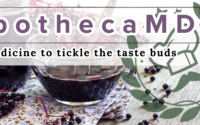Phytocompounds and their molecular targets in immunomodulation: a review
J Basic Clin Physiol Pharmacol. 2021 Nov 15. doi: 10.1515/jbcpp-2021-0172. Online ahead of print.
ABSTRACT
Immune cells are important for the healthy function of every organ. The homeostasis of the immune system is selfregulated by T-cells, B-cells, and natural killer cells. The immunomodulation process of immune cells is part of the immunotherapy. According to therapeutic methods of immune responses are categorized as inducing (immunostimulant), amplification (immune booster), attenuation (immunomodulation), and prevention (immunosuppressive) actions. The prevalence of chronic immunological diseases like viral infections, allergies, and cancer is mainly due to the over-activation of the immune system. Further, immunomodulators are reported to manage the severity of chronic immunological disorders. Moreover, these immunomodulator-acting proteins are identified as potential molecular targets for the regulation of the immune system. Moreover, natural compound like phytocompounds are known to bind these targets and modulates the immune system. The specialized phytocompounds like curcumin, quercetin, stilbenes, flavonoids, and lignans are shown the immunomodulatory actions and ameliorate the immunological disorders. The present scenario of a COVID-19 pandemic situation has taught us the need to focus on strengthening the immune system and the development of the most promising immunotherapeutics. This review is focused on an overview of various phytocompounds and their molecular targets for the management of immunological disorders via immunosuppressants and immunostimulants actions.
PMID:34786892 | DOI:10.1515/jbcpp-2021-0172

